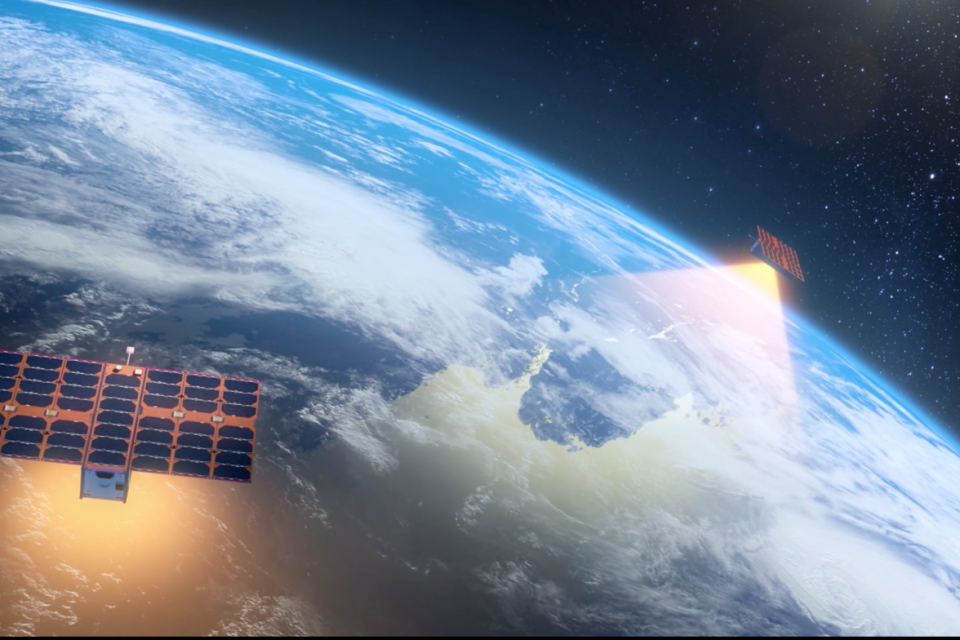Astrocast SA provides businesses with access to a cost-effective, bidirectional satellite IoT (SatIoT) service, to connect IoT devices globally when outside of cell-based terrestrial networks at a comparable cost. This accessibility to Astrocast’s Satellite IoT service has the potential to transform the business model for global IoT, opening the door to a raft of new, powerful applications that will accelerate change and deliver tangible value to business, individuals and the environment. The Swiss company receives support as part of the Microsoft for Startups program in Switzerland.
With 85% of the world not covered by cellular technology, the Internet of Things (IoT) is simply not an option for vast numbers of organisations. Agriculture, for example, is desperate to embrace technologies that will reduce the need for widespread animal medication, minimise the use of chemicals and enable effective responses to the challenges presented by a changing climate. Without complete, global coverage, the true power of IoT to enable fundamental change will never be realised.
These are challenges that Astrocast aims to tackle by enabling companies to monitor, track, assess, and communicate with critical remote assets from anywhere in the world. Founded in 2014, Astrocast develops all of its products in-house, from the satellites to the modules. With around 90 employees the company tackles challenges in industries such as Agriculture & Livestock, Oil, Gas & Mining, Maritime, Environmental and Land Transport.
Utilising its own recently launched nanosatellite constellation in Low Earth Orbit, Astrocast offers affordable connectivity for all and supports applications in asset tracking, telemetry, and telematics; as it fosters innovation across sectors. “By default, IoT solutions implemented in many of these situations are deployed in remote locations – from mines to farmland, ships to oil platforms. Astrocast’s solution minimises the need for human intervention and repair, wherever possible, safeguarding the business case,” says Federico Belloni CTO & Co-Founder of Astrocast.
So far, organisations have struggled to create a business case for deploying IoT solutions that can offer comprehensive global coverage, as well as efficient and reliable connectivity. There is now an opportunity to use satellite IoT to increase visibility, transparency, and control over assets globally – and the potential for use cases across an array of sectors is almost limitless. Belloni elaborates: “What is more, in the past, these solutions have been too complex, costly, or simply unavailable. But, thanks to developments in satellite IoT technology, this is changing; and organisations that recognise the potential of going beyond terrestrial IoT will be able to create new competitive advantages too.”
The areas of applications are vast. “For example, in New Zealand there is a drive to remotely track cattle to identify individual animals that are unwell, allowing immediate intervention and removal from the herd, to reduce the spread of disease – and, in the process, minimise the need for medication,” explains Belloni. “The ability to rapidly capture and analyse this information through SatIoT not only fast tracks the adoption of this model, but also provides rapid insights into the success of the approach.” This is also particularly important in combatting climate change. Using tiny sensors attached to an array of sea creatures, including turtles, is not just providing scientists insight into the behaviour and travel patterns of the animals, but is also capturing vital information regarding sea health, including salinity. From mapping sea temperatures to the depth turtles are swimming, to capturing information about sea water quality, the information provided by these creatures is automatically transmitted via SatIoT as they surface.»
As part of Microsoft for Startups, Astrocast is leveraging the extensive capabilities of the Microsoft Azure Cloud. “Microsoft’s cloud services and tools integrate very well in the software development cycle and developer tool chain. Technical documentation and support and a strong commitment to the developer community has contributed to our decision,” says Belloni. Additionally, Astrocast is planning on migrating their primary services to Microsoft’s datacenters in Switzerland with local data residency to simplify data regulation and legal questions.
The collaboration with Microsoft has helped Astrocast build and deploy applications and services, with robust and scalable hosting, quite quickly compared to other options. From Microsoft’s perspective, what’s changing for space, is that technology is propelling us forward. Space was once largely inaccessible, costly, and a faraway dream for many – mostly the domain of superpowers; but that is now changing. ”Space is a rapidly growing ecosystem with ambitions to make remote connectivity increasingly attainable across key industries like agriculture, energy, telecommunications as well as across the public sector,” says Tim Moser, Program Manager for Microsoft for Startups Switzerland. “We are very pleased to support Astrocast in their journey to redefining the borders and making satellite IoT accessible for everyone to advance our progress here on Earth while making Azure their platform of choice.”





